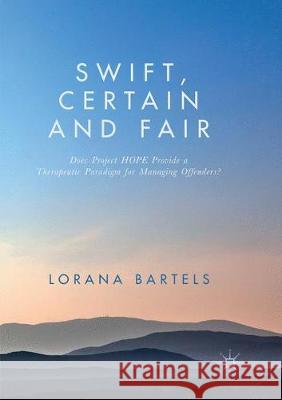Swift, Certain and Fair: Does Project Hope Provide a Therapeutic Paradigm for Managing Offenders? » książka
topmenu
Swift, Certain and Fair: Does Project Hope Provide a Therapeutic Paradigm for Managing Offenders?
ISBN-13: 9783319864112 / Angielski / Miękka / 2018 / 219 str.
Swift, Certain and Fair: Does Project Hope Provide a Therapeutic Paradigm for Managing Offenders?
ISBN-13: 9783319864112 / Angielski / Miękka / 2018 / 219 str.
cena 401,58
(netto: 382,46 VAT: 5%)
Najniższa cena z 30 dni: 385,52
(netto: 382,46 VAT: 5%)
Najniższa cena z 30 dni: 385,52
Termin realizacji zamówienia:
ok. 22 dni roboczych
Dostawa w 2026 r.
ok. 22 dni roboczych
Dostawa w 2026 r.
Darmowa dostawa!
Kategorie:
Kategorie BISAC:
Wydawca:
Palgrave MacMillan
Język:
Angielski
ISBN-13:
9783319864112
Rok wydania:
2018
Wydanie:
Softcover Repri
Ilość stron:
219
Oprawa:
Miękka
Wolumenów:
01











